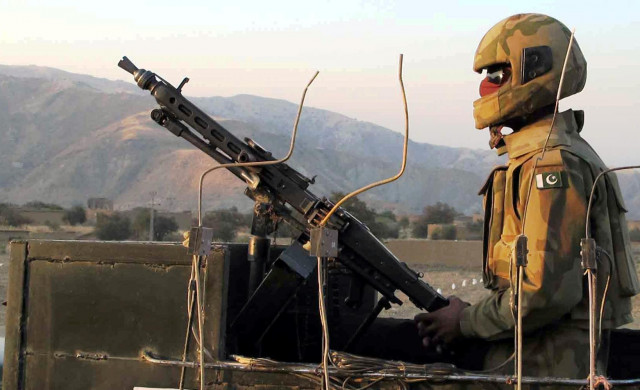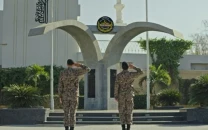Border shelling overshadows US-Pakistan-Afghanistan talks
Deep distrust remains, both between the US and Pakistan and between Afghanistan and Pakistan, ahead of talks.

Afghan President Hamid Karzai accused Pakistan on Sunday of firing 470 rockets into eastern Afghanistan over the past three weeks in an escalation of fighting across the porous border. Pakistan denied the allegations. It blames Afghanistan for giving safe haven to militants on its side of the border, particularly in eastern Kunar province, leaving it vulnerable to counter-attack when it chases them out of its own ethnic Pashtun tribal areas.
"I think the main thing on the agenda this time may be the situation on the border," said Waheed Mujhda, political analyst at the Afghan Analytical and Advisory Centre in Kabul.
The talks, between US envoy Marc Grossman and top diplomats from Afghanistan and Pakistan, will be the first since President Barack Obama announced a faster-than-expected troop withdrawal last week, accompanied by talks with the Taliban.
Pakistan, badly bruised after US forces found and killed Osama bin Laden in the Pakistani town of Abbottabad on May 2, is keen to show it has a constructive role to play in helping the United States to bring stability to Afghanistan.
"They don't want this trillion dollar war. They want to get out of Afghanistan because their economy doesn't allow them to carry on. But they want some kind of resolution," a senior Pakistani military official said last month.
Pakistan has long wanted the United States to hold talks with the Taliban to seek a political settlement to the Afghan conflict which it says is fuelling its own domestic insurgency.
The United States has come some way towards sharing that view, opening its own preliminary talks with the Taliban. It has also softened its stance on talks by saying its demands that insurgents renounce violence, sever ties with al Qaeda and respect the Afghan constitution are outcomes rather than preconditions for negotiations - a suggestion made last year by Pakistan.
"Strategically the two countries are on same page," the senior military official said. "There are issues on operational and tactical levels." Karzai has also been pushing for reconciliation with the Taliban and for the first time in the 10-year war, Pakistan, Afghanistan and the United States all share - in theory at least -- a commitment to seek a political settlement.
Distrust on all sides
But deep distrust remains, both between the United States and Pakistan and between Afghanistan and Pakistan.
Afghanistan accuses Pakistan of continuing to support the Afghan Taliban, whom it openly backed when they were in power from 1996 to 2001, to maintain its influence in Afghanistan.
Kabul also says Islamabad is trying to manipulate peace talks to its advantage, to the point of sabotaging them if they do not go in the direction it wants.
"We expect practical steps from Pakistan in the weeks and months ahead to help sustain the peace process," a senior Afghan government official said. "The ball is in Pakistan's court." Mujhda, the political analyst, echoed widespread distrust in Kabul of Pakistan's intentions.
"In each of these meetings the reconciliation issue is raised, promises are made and then the countries go home and nothing is done," he said. "Pakistan has so far opposed attempts by the US to talk to the Taliban."
The United States is also reluctant to include all insurgents in a political settlement, limiting its talks to the Afghan Taliban led by Mullah Mohammed Omar, but excluding the Haqqani network - the most active group in eastern Afghanistan.
With the talks still at a preliminary stage, and vulnerable to ethnic and regional rivalries which could plunge Afghanistan deeper into civil war as US troops withdraw, the cross-border shelling has added another complication to a fragile situation.
The Afghan government said on Sunday that "it strongly condemned the firing of 470 rockets over the past three weeks from the Pakistan side of the border in the eastern provinces of Kunar and Nangahar provinces".
President Karzai expressed his deep concern, it said, and asked Pakistan to immediately stop firing into Afghanistan.
Pakistan army spokesman Major General Athar Abbas denied the allegations on Monday. "This is not true. No rounds have been fired into Afghanistan," he said.
In the last month, there had been five major attacks from the Afghan side of the border, in which 55 men in the Pakistani security forces had been killed and 80 wounded. "The fleeing militants were engaged by the security forces and a few accidental rounds going across cannot be ruled out," he said.
Pakistan says militants, including Pakistani Taliban commanders, have taken refuge on the Afghan side after it launched military operations to drive them out of its Federally Administered Tribal Areas (FATA).
It was angered by a US decision to thin out its troops in eastern Afghanistan, including the Korengal valley in Kunar province, when Washington decided to concentrate on population centres in southern Afghanistan, the Taliban heartland.
"For quite some time we have been highlighting that there are safe havens across the border," Abbas said. "Something should be done about these."
Before the killing of Bin Laden, the United States had been talking about improving coordination of military operations on both sides of the border so that they could work with, rather than against, each other, in fighting insurgents. That cooperation may have deteriorated in the breakdown of trust which followed the unilateral US raid to get Bin Laden, perhaps explaining the escalation in cross-border shelling.
It is impossible to verify independently exactly what is happening on the remote mountainous border. The Afghan government official said he was sure the border fighting - which has prompted formal protests on both sides - would come up at Tuesday's talks.
Pakistan will be represented at the talks by its top diplomat, Foreign Secretary Salman Bashir.



















COMMENTS
Comments are moderated and generally will be posted if they are on-topic and not abusive.
For more information, please see our Comments FAQ